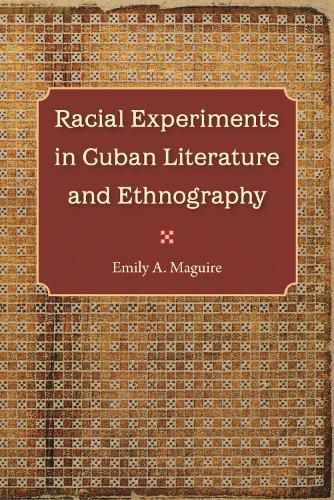Readings Newsletter
Become a Readings Member to make your shopping experience even easier.
Sign in or sign up for free!
You’re not far away from qualifying for FREE standard shipping within Australia
You’ve qualified for FREE standard shipping within Australia
The cart is loading…






This title is printed to order. This book may have been self-published. If so, we cannot guarantee the quality of the content. In the main most books will have gone through the editing process however some may not. We therefore suggest that you be aware of this before ordering this book. If in doubt check either the author or publisher’s details as we are unable to accept any returns unless they are faulty. Please contact us if you have any questions.
In the wake of independence from Spain in 1898, Cuba’s intellectual avant-garde struggled to cast their country as a modern nation. They grappled with the challenges presented by the postcolonial situation in general and with the location of blackness within a narrative of Cuban-ness in particular.
In this breakthrough study, Emily Maguire examines how a cadre of writers reimagined the nation and re-valorized Afro-Cuban culture through a textual production that incorporated elements of the ethnographic with the literary. Singling out the work of Lydia Cabrera as emblematic of the experimentation with genre that characterized the age, Maguire constructs a series of counterpoints that place Cabrera’s work in dialogue with that of her Cuban contemporaries-including Fernando Ortiz, Nicolas Guillen, and Alejo Carpentier. An illuminating final chapter on Cabrera and Zora Neale Hurston widens the scope to contextualize Cuban texts within a hemispheric movement to represent black culture.
$9.00 standard shipping within Australia
FREE standard shipping within Australia for orders over $100.00
Express & International shipping calculated at checkout
This title is printed to order. This book may have been self-published. If so, we cannot guarantee the quality of the content. In the main most books will have gone through the editing process however some may not. We therefore suggest that you be aware of this before ordering this book. If in doubt check either the author or publisher’s details as we are unable to accept any returns unless they are faulty. Please contact us if you have any questions.
In the wake of independence from Spain in 1898, Cuba’s intellectual avant-garde struggled to cast their country as a modern nation. They grappled with the challenges presented by the postcolonial situation in general and with the location of blackness within a narrative of Cuban-ness in particular.
In this breakthrough study, Emily Maguire examines how a cadre of writers reimagined the nation and re-valorized Afro-Cuban culture through a textual production that incorporated elements of the ethnographic with the literary. Singling out the work of Lydia Cabrera as emblematic of the experimentation with genre that characterized the age, Maguire constructs a series of counterpoints that place Cabrera’s work in dialogue with that of her Cuban contemporaries-including Fernando Ortiz, Nicolas Guillen, and Alejo Carpentier. An illuminating final chapter on Cabrera and Zora Neale Hurston widens the scope to contextualize Cuban texts within a hemispheric movement to represent black culture.